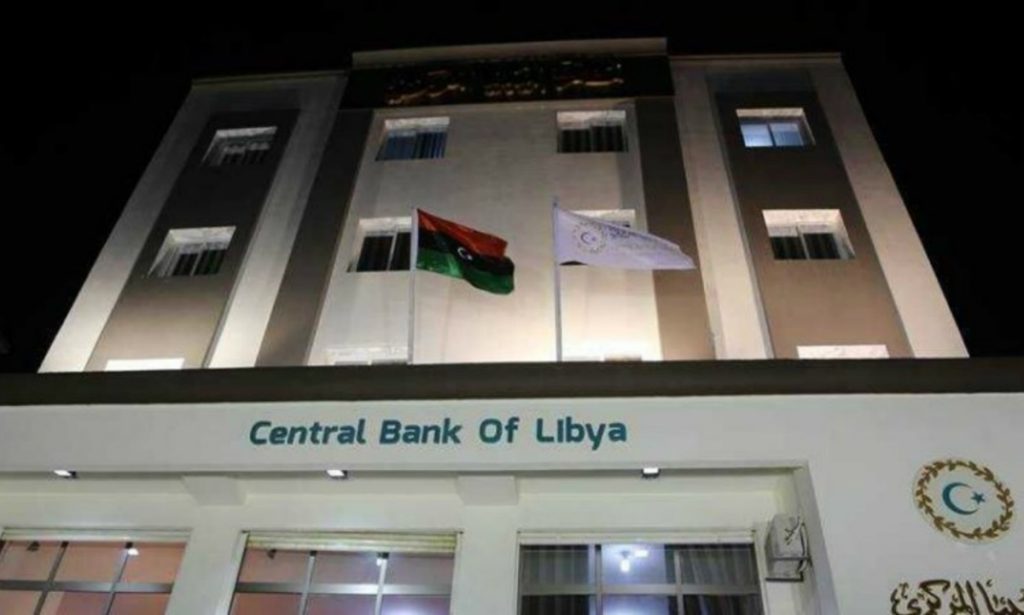The Central Bank of Libya announced on Sunday that it was halting all activities following the abduction of a bank official in Tripoli, as stated in a post on social media.
The statement indicated that Musab Msallem, the head of information technology at the Central Bank of Libya, was taken from his residence by an unidentified group in the morning.
The bank declared that it would not resume its operations until Msallem is released and stated that other senior staff members were also under threat of being abducted.
The bank called for an end to these actions and attributed them to unlawful parties endangering the safety of its employees and the continuity of the banking sector’s operations.

The bank provided no further details about the abduction.
The incident occurred a week after armed individuals besieged the central bank’s headquarters in Tripoli, reportedly to compel the resignation of the bank’s governor, Seddik al-Kabir.
Richard Norland, the US ambassador, said attempts to unseat Kabir were “unacceptable” and warned that replacing him “by force can result in Libya losing access to international financial markets.”
In a post on social media platform X, Norland said the confrontation in Tripoli “highlights the ongoing risks posed by the political stalemate in Libya.”
After the siege, the UN Support Mission in Libya (UNSMIL) highlighted the bank’s significant role in maintaining the country’s financial stability.
Since 2012, Kabir has been in office and has faced criticism for his management of Libya’s oil resources and the state budget, including from individuals close to Prime Minister Abdulhamid Dbeibah.
With a population of 6.8 million people, Libya has struggled to recover from years of conflict following the 2011 NATO-backed uprising that ousted longtime dictator Moamer Kadhafi.
The country remains divided between a UN-recognised Tripoli government led by Dbeibah and a rival administration in the east, supported by military strongman Khalifa Haftar.
Despite a relative return to calm in recent years, intermittent clashes still occur between the numerous armed groups in Libya.
The abduction on Sunday is the latest in a series of events amid rising tensions between different factions, raising concerns of a broader escalation in recent weeks.


